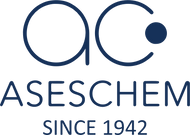
The Importance of Micronutrients in Hydroponics: How to Optimize Your Plant Growth with Aseschem Nutrient Solutions
Hydroponic Micronutrients
An innovative way to grow plants without soil is using Hydroponic nutrients. This method uses Hydroponic fertilizers solutions to supply all the components required for plant growth. To support ideal plant development and growth, these Nutrient film technique solutions must have the proper ratios of micronutrients.
Even though they are only needed in minute amounts, micronutrients, also known as trace elements, are crucial for plant growth. These substances consist of chlorine, iron, zinc, copper, manganese, boron, and molybdenum. Despite being present in most soils, these elements are easily depleted, which makes it difficult for plants to obtain the nutrients they need.
In Organic hydroponic nutrients, the micronutrients are included in the nutrient solution to make sure the plants receive all the components they need to grow.
Iron is one of the most crucial micronutrients in hydroponics. Iron is necessary for photosynthesis and respiration, and a lack of it can cause leaves to turn yellow. To increase iron's availability to plants in hydroponics, it is frequently chelated. Chelation involves entangling the iron with an organic molecule to keep it from interacting with other substances in the solution and to facilitate easier absorption by plants.
Another crucial component for hydroponics is zinc. It is necessary for stress tolerance, growth regulation, and protein synthesis. A zinc deficit can result in stunted growth, distorted leaves, and lower yields. Zinc sulphate is a common type of zinc that is added to the nutritional solution.
Another crucial micronutrient for hydroponics is copper. It is necessary for a variety of plant functions, such as photosynthesis, respiration, and the production of lignin. A lack of copper can result in stunted growth, leaf browning, and weakened stress tolerance. Copper sulphate is a common type of copper that is added to the nutritional solution.
Enzyme activity and photosynthesis both require manganese. A lack of it might result in stunted development and browning of the leaves. Manganese sulphate is a common type of manganese that is added to the nutrient solution.
The building of cell walls, the transportation of sugar, and reproduction all require boron. Reduced yields and skewed growth can result from its lack. The mineral boric acid is frequently added to the nutritional solution.
Nitrogen fixation and enzyme activation require molybdenum. Reduced growth and leaf yellowing can result from its lack. Sodium molybdate, which contains molybdenum, is frequently added to the nutritional solution.
Both photosynthesis and osmotic control require chlorine. A lack of it might result in leaf withering and stunted growth. The nutritional solution frequently contains potassium chloride, which is a type of chlorine.
In hydroponics, micronutrients are crucial for plant development. They are essential for photosynthesis, respiration, controlling growth, and stress tolerance. Despite the fact that only trace amounts of these substances are needed, a shortage could result in substantial production and growth losses. In hydroponics, the micronutrients are included in the nutrient solution to make sure the plants receive all the components they need to grow. Micronutrient control is crucial for effective hydroponic gardening and can greatly increase crop yields.
Knowing this much about hydroponic nutrients, you must be willing to buy it. Don’t worry, Aseschem is the perfect place for this. So, what are you waiting for? Buy best hydroponic nutrient solution from Aseschem now!
